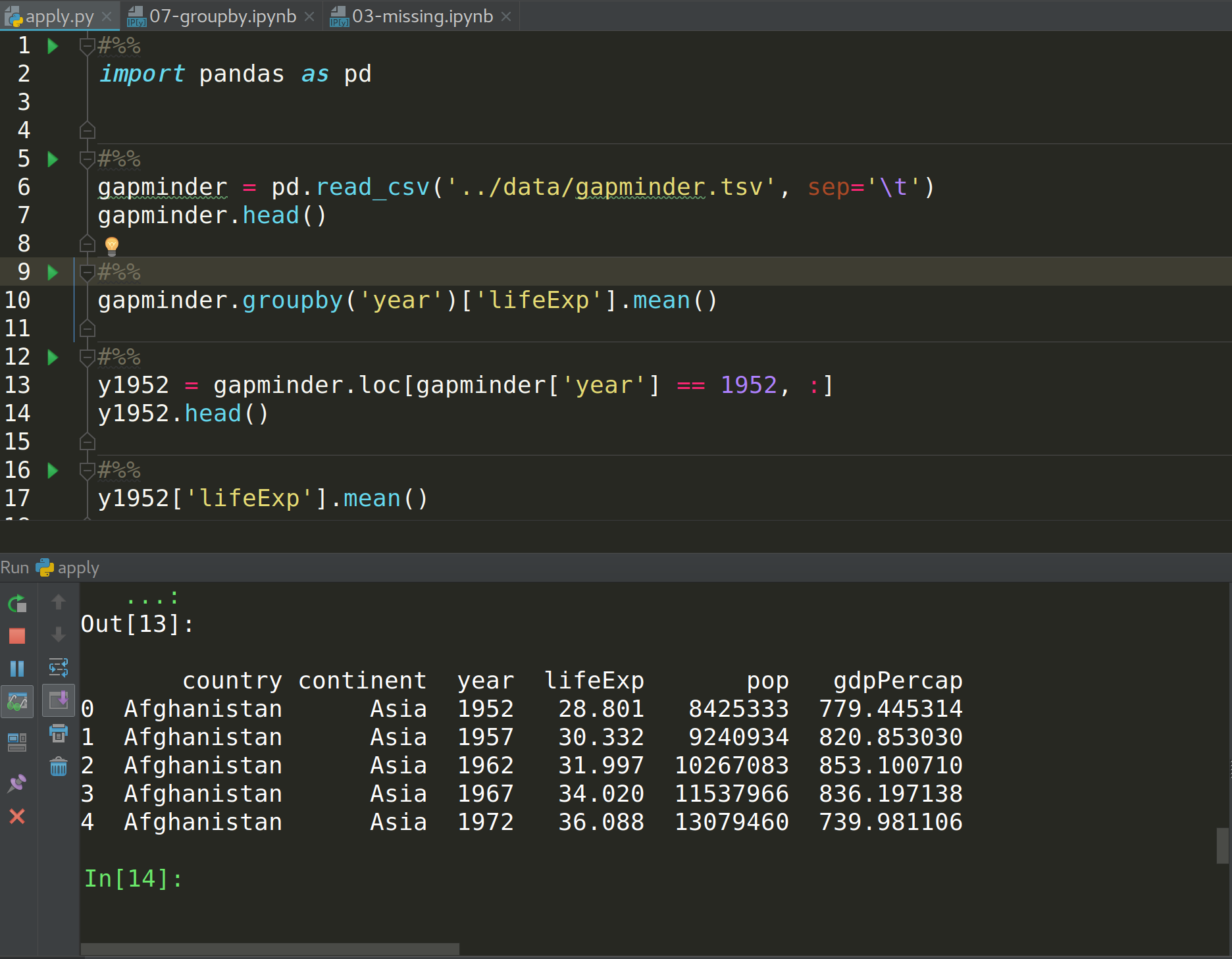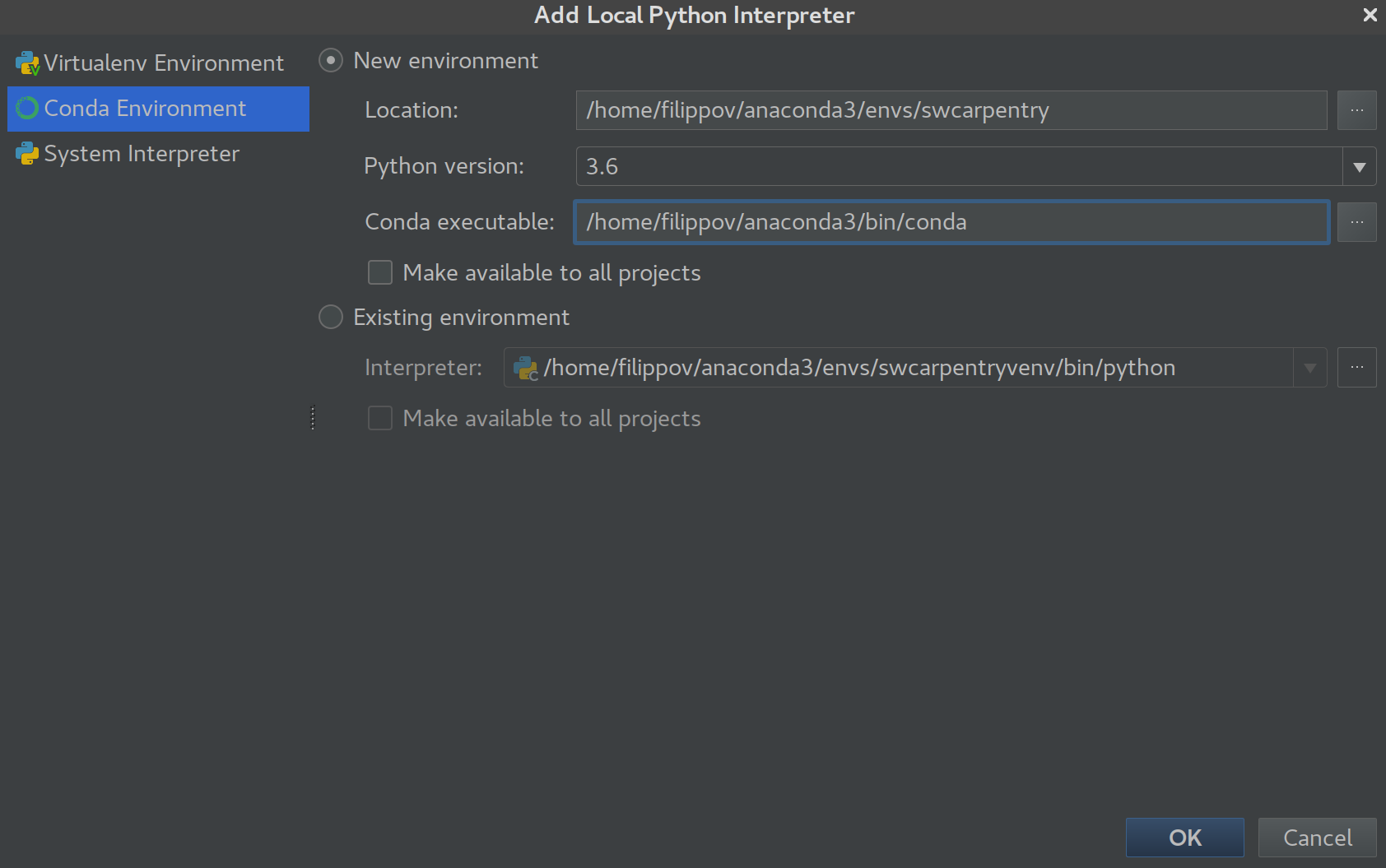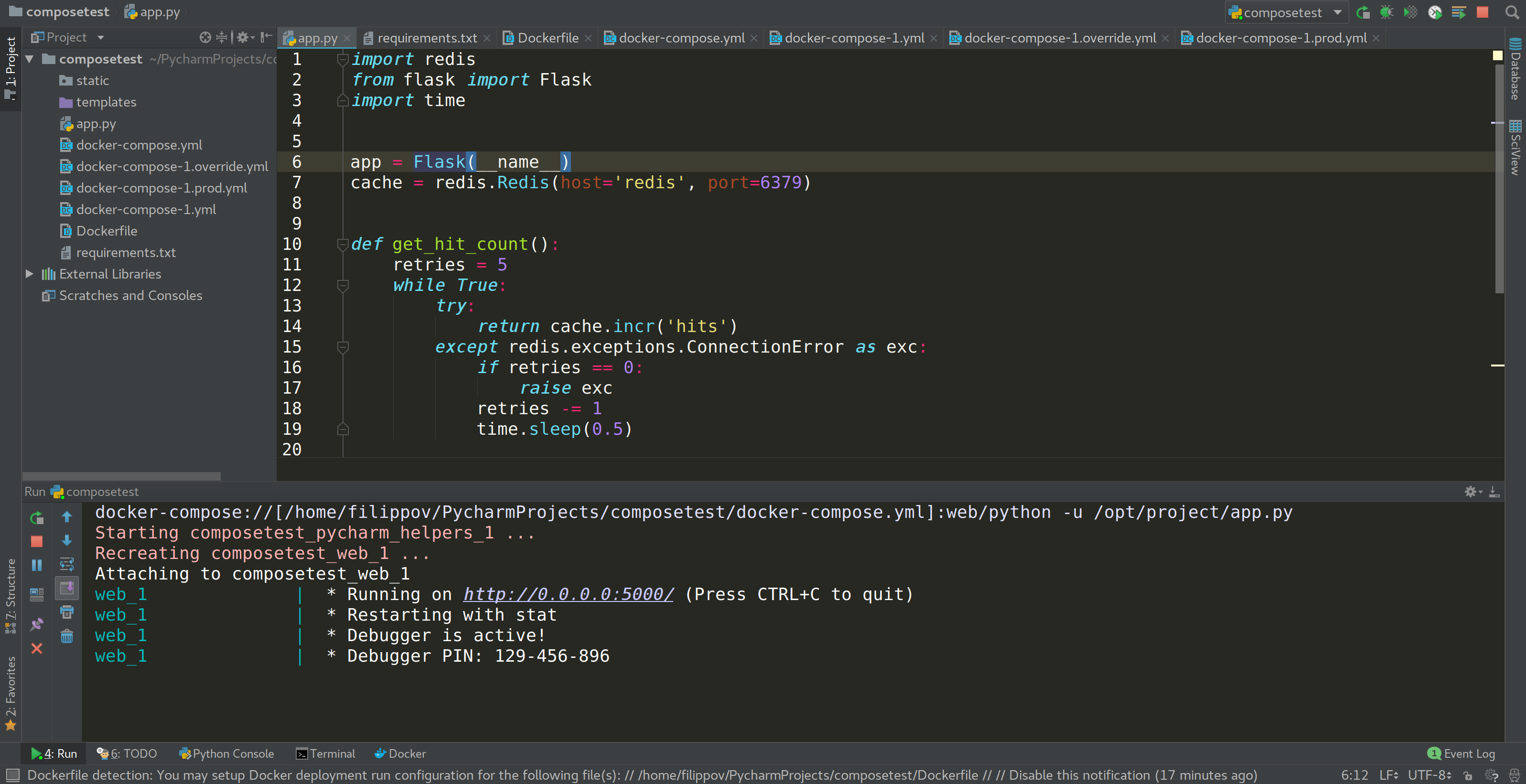PyCharm 2018.1 EAP 4
You can now download the fourth Early Access Program (EAP) version of PyCharm 2018.1 from our website.
New in PyCharm 2018.1 EAP 4
Run Cells in .py Files
PyCharm 2018.1 brings an exciting feature for Python developers doing data analysis and scientific development. You can break your .py files down into code cells which can be executed separately in the integrated Python console.
Important Note: Code cells are supported only in the PyCharm Professional Edition with the Scientific Mode enabled. Don’t forget to enable Scientific Mode in View | Scientific Mode before trying this feature out.
A “code cell” is a block of lines to be executed all at once in the integrated Python console. You can define cells simply by adding inline comments #%% to your regular Python files. PyCharm detects these comments and shows you a special run icon in the left gutter. Clicking this icon triggers the execution of a cell:

Improved Conda Environment Support
Creating and managing new Conda environments has just got easier with PyCharm as we added an option to specify a Conda executable when setting up a new environment for your project. PyCharm remembers a Conda executable specified with this option and uses it for the future creation of Conda environments:

Improved docker-compose Support
Note: docker and docker-compose integration is only available in PyCharm Professional Edition
With this EAP build we released some important fixes and improvements for docker-compose support: now PyCharm follows symlinks to docker-compose configuration files and supports configuration files v.3.2 and v.3.3. Running and debugging with docker-compose now works much faster than before, and last, but not least, the output from the Run/Debug console as well as the integrated manage.py (Django) console looks slicker and conforms to the output of the original docker-compose command:

Python 3.7: __class_getitem__ class method
Although the release of Python 3.7 may still seem pretty far away, we’ve been working hard to make sure PyCharm will be ready when it comes. In this EAP we’ve added support for the PEP 560 __class_getitem__ class method.
Type Annotations for Local Variables
We’ve been making steady improvements to the core of our product: Python code analysis. In this version, we have added a new intention action: “Add type hint for variable” which automatically adds type annotations to local variables based on PyCharm’s type inference mechanism.
You can read about further improvements in the release notes.
Interested?
Download this EAP from our website. Alternatively, you can use the JetBrains Toolbox App to stay up to date throughout the entire EAP.
If you’re on Ubuntu 16.04 or later, you can use snap to get PyCharm EAP, and stay up to date. You can find the installation instructions on our website.
PyCharm 2018.1 is in development during the EAP phase, therefore all the new features are not all available yet. More features will be added in the coming weeks. As PyCharm 2018.1 is pre-release software, it is not as stable as the release versions. Furthermore, we may decide to change and/or drop certain features as the EAP progresses.
All EAP versions will ship with a built-in EAP license, which means that these versions are free to use for 30 days after the day that they are built. As EAPs are released weekly, you’ll be able to use PyCharm Professional Edition EAP for free for the duration of the EAP program, as long as you upgrade at least once every 30 days.
Subscribe to PyCharm Blog updates








